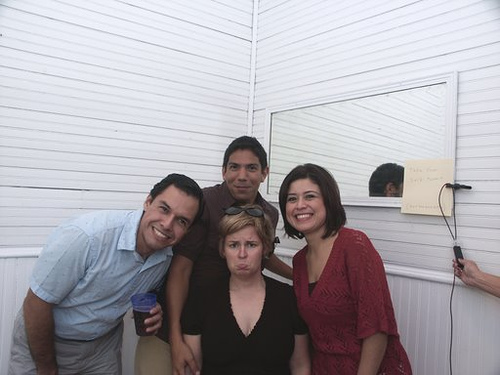In a recent comment to my post “How Do You Fix Greed? Part II: American Society Is Built for Greed,” someone asked
Why should l sacrifice my self to others? Read Ayn Rand, and you will know where greed comes from.
I was surprised by the question, because the answer seemed obvious to me, but the more I thought about the response, the more grateful I am for the comment, because it’s a fair question: even if greed is bad for society, which is something I’ve been asserting in recent posts, from a certain perspective there’s the following pressing question: So what? If I can get everything I want, why should it matter to me if other people are unhappy about that, or if it interferes with things society or culture expects from me?
For the asker’s interest, I’ve read Ayn Rand, and I’m familiar with a lot of arguments for greed. If you’re looking at the question on a strictly personal level, it comes down to this: people who let themselves fall prey to their own greed are assuming that getting more will bring them more pleasure, and that pleasure and happiness are the same thing. The truth–and there’s good science backing this up–is that having more stuff does not necessarily bring more pleasure, and that even if it did (which it doesn’t, remember), that pleasure doesn’t by itself amount to happiness.
I’m not going to go into detail about all the research here, to prevent this post from becoming unmanageably long, but before I continue I’ll link to other articles on this site, several of which reference the studies that provide the raw information for the connections between human relationships, happiness, and pleasure that I’m about to describe.
The Difference Between Pleasure and Happiness
If It’s Not Fun, Why Do It? A Few Pointed Answers
Why Happiness Is Key
How Other People’s Happiness Affects Our Own
Want to Reduce Stress? Increase Social Time
The Best 40 Percent of Happiness (this one covers lottery winners)
The High Cost of Not Liking Your Job
Why doesn’t “more” bring more pleasure?
Getting more things does not necessarily lead to more pleasure, although it’s true that some things, in some situations, can add to pleasure and even happiness. Unfortunately for our pleasure levels, though, the more we get, the less any given part of it matters. If you go to a restaurant and eat the most delicious meal in the world, the first time you eat it, you may be in ecstasy. If you eat it again the next day, due something psychologists call “hedonic adaptation,” it simply won’t be as good. It’s similar to the process a drug addict may go through, whether that drug is caffeine or crack or something in between. The first hit has an enormous effect, but subsequent experiences produce less and less dopamine, the neurochemical that makes us feel pleasure. In other words, the more I have, the less pleasure I get from each thing.
Additionally, having more power, money, resources, or things also means I have more concerns, because I need to defend myself from people who want to usurp my power, siphon off my money, use my resources, or take my things. As I get more and more, what I have pleases me less and adds more to my stress load. We often envy celebrities, people with political power, and others who have “more,” yet the rates of scandal, failed marriage, substance abuse, and other indicators of severe unhappiness seem to be exceptionally high among these kinds of people. Some of it is surely the pressure of being in the public eye all of the time, but regardless, it lends support to the point that having more is not necessarily pleasurable. Ask the many people who’ve won the lottery and later committed suicide–oh wait, you can’t: they’re dead.
Isn’t “happiness” just another word for “pleasure”?
Even the pleasure that we can get from having more doesn’t amount to happiness. Happiness, according to research, has a lot to do with having enough and not much to do with having extra. It also has a lot to do with how we think and feel about ourselves and about our relationships with other people. If I feel like a good person, am proud of my accomplishments and integrity, enjoy the company of people close to me, experience trust and connection with others, and otherwise make the most of myself and my relationships, I’m far, far more likely to be happy than if I have piles of stuff, people whose interest in me might be mainly about my having piles of stuff, and things I don’t need that I have to defend from people who either don’t have enough stuff or are as greedy as I am.
Greed at its heart is a misunderstanding, at attempt to substitute money, power, or stuff for the things that really make us happy (see the first article in this series, “How Do You Fix Greed? Part I: The Roots of Greed“). The altruistic and kind behavior that seems like sacrificing ourselves, when done in a healthy and proportionate way, surprisingly turns out to get us the most individual happiness of anything we could possibly do. Greed is an easy path to falling short of the happiness we could otherwise achieve.
Photo by CaptPiper





